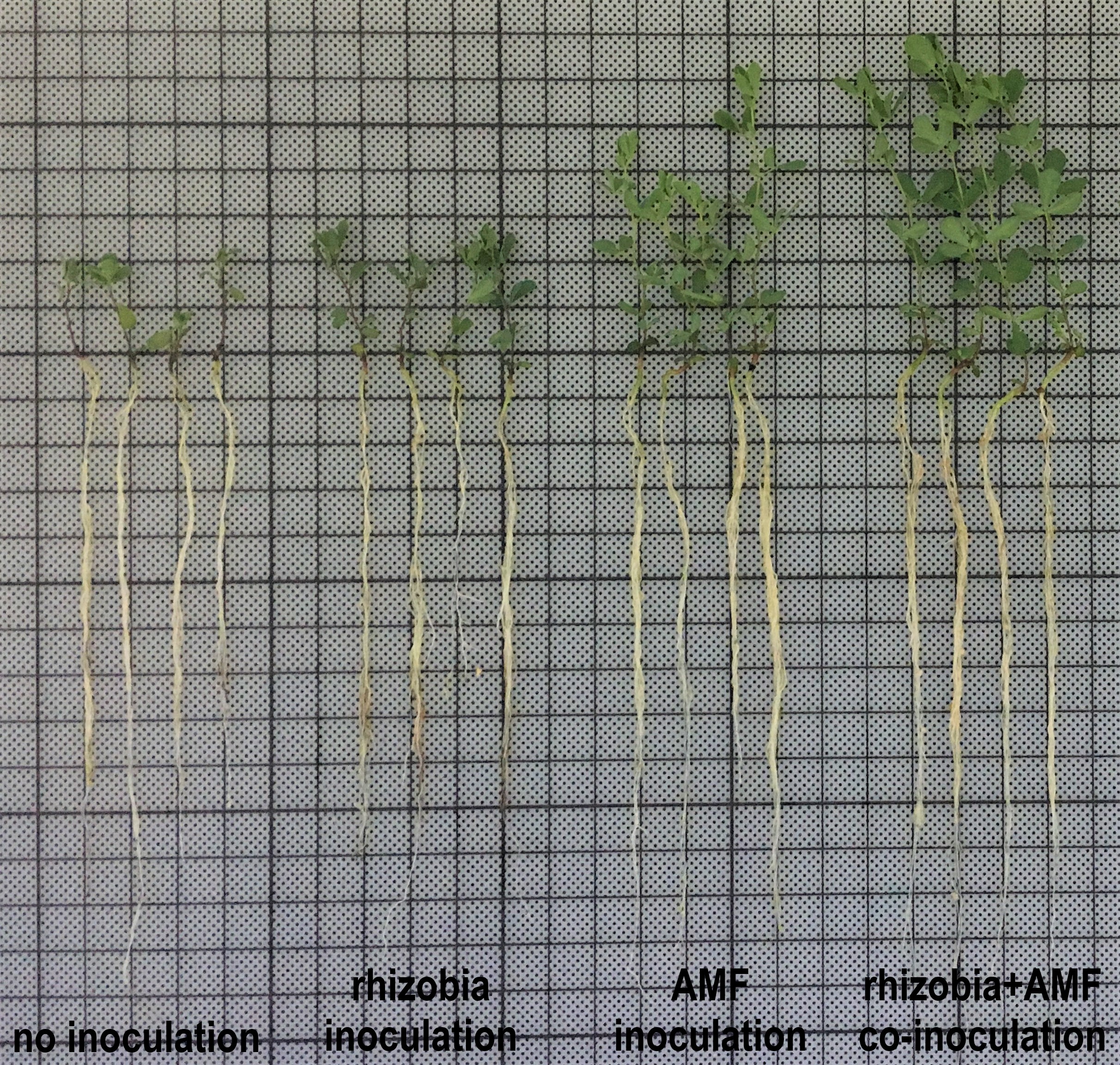Through evolution plants have developed sophisticated strategies to secure protection from biotic and abiotic stresses and availability of nutrients. The development of mutually beneficial symbiotic relationships with soil microbes, either bacteria (like rhizobia) or fungi (like arbuscular mycorrhizal fungi), is such an example. Beneficial microbes that establish symbiosis with plants and provide them with nutrients are viewed as “Biofertilizers” and are of particular interest to humans because they may be exploited in order to reduce chemical fertilization to crops and therefore, to protect the environment and to cut down on agricultural production costs.
Our research focuses on the symbiosis of plants with arbuscular mycorrhizal (AM) fungi, which seems to be the most ancient and widespread plant-microbe symbiosis, and the symbiosis of legumes with the nitrogen-fixing rhizobia. The dominant role of AM symbiosis appears to be nutrient acquisition (phosphorus, nitrogen and other mineral nutrients), but AM symbiosis also benefits the plant by providing disease resistance and tolerance to abiotic stress. The legume-rhizobium symbiosis is one of the most celebrated mutualistic plant-bacteria interactions. Rhizobia colonize the plant root and provide the plant with the nitrogen, a growth limiting macronutrient, through a process called Symbiotic Nitrogen Fixation.

We use the model legume Lotus japonicus, which is a well-studied plant, and it is well known to establish mutualistic symbioses with both rhizobia and AM fungi. To explore the interplay between different symbiotic interactions we perform single inoculations or co-inoculations with rhizobia and arbuscular mycorrhizal fungi, and examine putative changes on general plant physiology, plant growth, plant defense and plant signaling pathways at the molecular level. Emphasis is given in the “common symbiotic pathway” induced by both rhizobia and AM fungi during the colonization of the legume root, and moreover, on the mechanism that regulates the microbial infection and colonization by the host plant, called “autoregulation”, and ensures the restriction of the microbial infection and colonization according to the plant needs.
This research holds promise to improve the current agricultural practices by highligting synergies and incompartibilities of microbe-based inovations that are rapidly introduced in agroecosystems and to offer the basis for the design of new integrated strategies, in order to succeed a more efficient use of beneficial microbes in legume crops and beyond.
Funding
- Greek State Scholarship Foundation

Personnel
- Daniela Tsikou, Assistant Professor of Plant Molecular and Developmental Biology